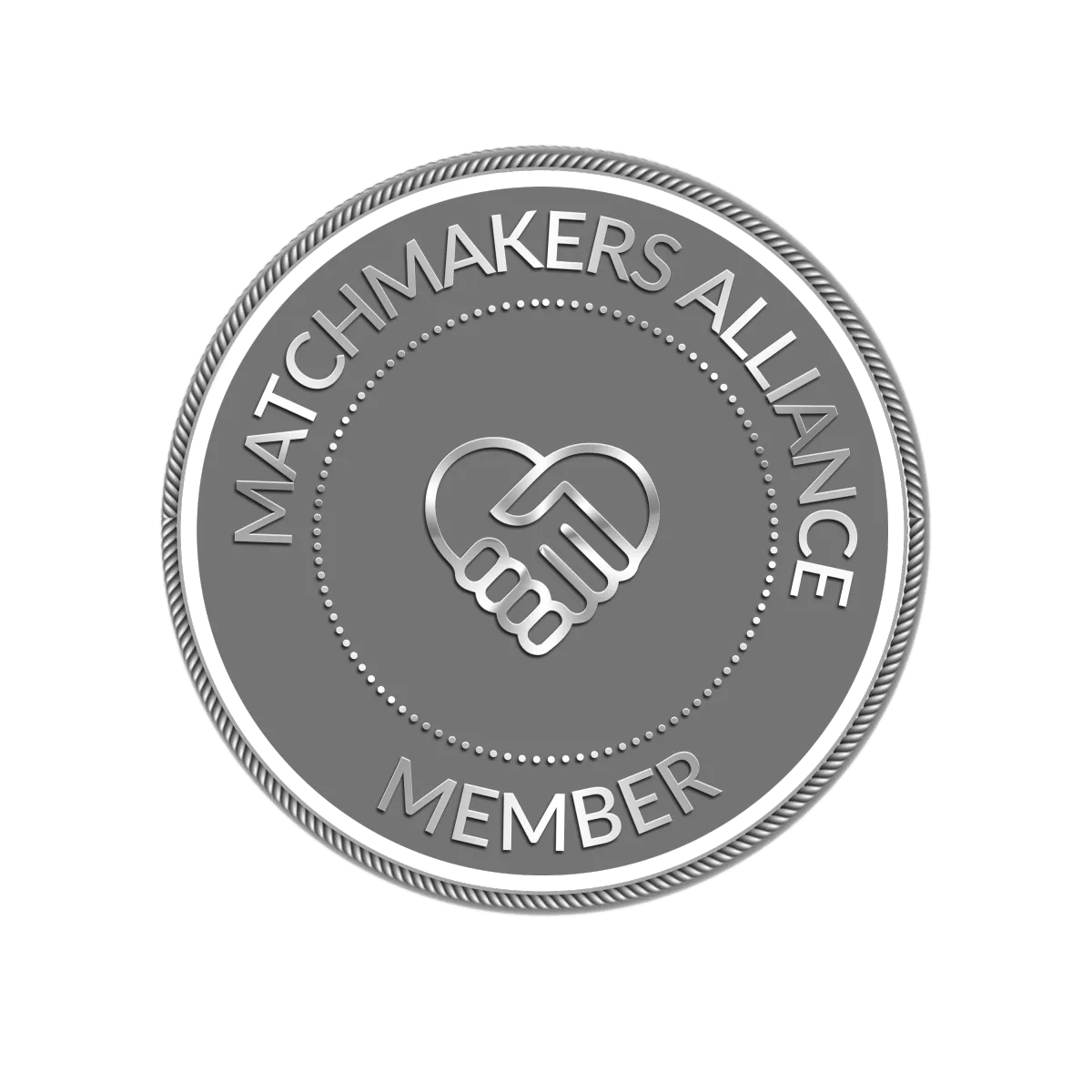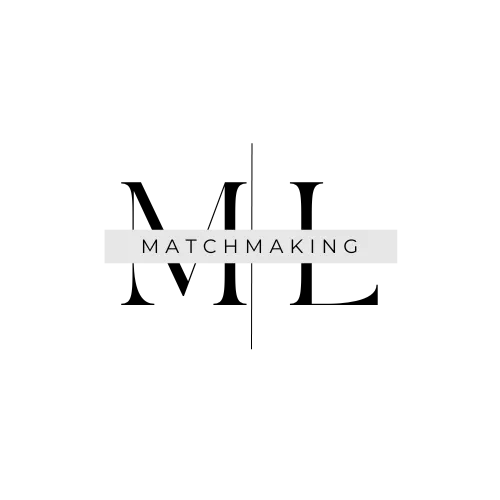WELCOME TO OUR B L O G
Let's Begin: Your Journey to Love Starts Here!
Welcome to MLM's Blog, your go-to spot for all things relationships. Our blog is like a cozy chat over coffee, where we spill the tea on dating, share stories, and dive into the psychology behind connections. Whether you're navigating the world of online dating or just looking for some heartwarming reads, we've got you covered.
Welcome to MLM's Blog, your go-to spot for all things relationships. Our blog is like a cozy chat over coffee, where we spill the tea on dating, share stories, and dive into the psychology behind connections. Whether you're navigating the world of online dating or just looking for some heartwarming reads, we've got you covered.

How to Avoid Rebound Relationships
"Sometimes, you need to stand alone to understand what you truly want from a relationship." - Emily K.
Rebound relationships often offer a quick fix for the loneliness and sadness that follow a breakup. They can feel like a temporary balm, a way to distract yourself from the pain, but more often than not, they lead to further emotional confusion and heartache. If you've recently ended a relationship, it’s crucial to take a thoughtful approach before diving into something new. Here's how you can avoid falling into a rebound relationship and set the stage for a healthier, more fulfilling future.

1. Acknowledge and Process Your Emotions
The end of a relationship, no matter the circumstances, brings a wave of emotions—grief, anger, relief, confusion, and everything in between. It's vital to confront these feelings head-on instead of burying them under the distraction of a new relationship. Suppressing your emotions might lead to unresolved issues surfacing later, possibly sabotaging future relationships.
Tip: Give yourself permission to grieve. Emotions are like a storm—they’re intense but they pass. Journaling, meditating, or talking to a trusted friend can help you process your feelings. If needed, consider seeking help from a therapist who can guide you through your healing journey.
2. Rediscover Yourself
After a breakup, it’s essential to reconnect with who you are as an individual. Relationships often involve compromises and shared identities, and it can be easy to lose sight of yourself in the process. This is the perfect time to revisit hobbies, interests, and passions that you might have neglected.
Tip: Engage in activities that bring you joy and fulfillment. Whether it’s painting, hiking, reading, or cooking, immerse yourself in activities that remind you of your strengths and what makes you unique. This period of self-discovery will not only boost your self-esteem but also prepare you for a healthier relationship in the future.
3. Understand the Importance of Time in Healing
Healing is not a race; it's a journey that unfolds at its own pace. Everyone heals differently, and it's important not to rush this process. Jumping into a new relationship too soon might provide temporary comfort, but it can prevent you from fully healing and understanding what went wrong in the past.
Tip: Set aside time to reflect on your previous relationship. What did you learn from it? What patterns do you want to avoid in the future? Use this time to clarify your values, needs, and goals. Remember, it’s better to enter your next relationship when you’re whole rather than when you’re trying to fill a void.
4. Be Cautious with New Connections
If you find yourself dating again, be mindful of the dynamics of these new connections. It’s easy to mistake physical or emotional attraction for genuine compatibility, especially when you’re still emotionally raw. Acknowledge that not every date or potential partner is meant to be a lifelong relationship.
Tip: Take your time getting to know someone new. Keep the pace slow and focus on building a friendship first. This approach allows you to evaluate whether your feelings are genuine or if you’re simply seeking a distraction from your past relationship. Honesty and transparency with your new partner are crucial—let them know where you stand emotionally.
5. Reflect on Your Motives
Before diving into a new relationship, it’s important to assess your motives. Are you genuinely interested in this person, or are you looking for someone to fill the emptiness left by your previous partner? Rebound relationships often stem from a desire to escape loneliness or prove something to yourself or others.
Tip: Ask yourself questions like, “Am I ready for a serious relationship?” or “What do I genuinely like about this person?” If your answers are centered around avoiding loneliness or proving that you’ve moved on, it might be a sign that you’re not ready for a new relationship just yet.
6. Avoid Using Someone Else as a Band-Aid
Rebound relationships are often unfair to the new partner, who may be genuinely interested in you. Using someone else as a way to heal your wounds can lead to hurt feelings and a strained relationship. It's essential to be mindful of the other person’s emotions and not rush into something that you’re not ready for.
Tip: If you’re uncertain about your readiness for a new relationship, it’s okay to communicate this to your potential partner. Being honest about where you are emotionally can prevent misunderstandings and help both parties navigate the relationship with clarity and respect.
7. Trust Your Intuition
Your intuition is a powerful guide when it comes to relationships. If something feels off, it probably is. Rebound relationships often involve ignoring red flags because of the intense need to feel connected to someone. Listen to your gut—it’s there to protect you.
Tip: Pay attention to how you feel after spending time with someone new. Are you genuinely happy and interested, or are you using this person as a way to distract yourself from your feelings? If you notice any discomfort or doubt, take a step back and reassess your situation.
8. Build a Support System
Surround yourself with friends, family, and loved ones who can support you during this time. A strong support system can help you process your emotions, offer advice, and keep you grounded. They can also provide a reality check if you find yourself slipping into a rebound relationship.
Tip: Lean on your support system for emotional comfort rather than seeking it from a new partner. Friends and family can offer perspective and help you see things more clearly when your judgment might be clouded by recent heartbreak.
9. Focus on Personal Growth
Personal growth is a critical component of healing and preparing for a new relationship. Use this time to work on yourself—whether it’s improving your physical health, pursuing a new career goal, or developing better emotional intelligence. Focusing on self-improvement can help you enter your next relationship as a stronger, more self-aware individual.
Tip: Consider setting personal goals that have nothing to do with relationships. Whether it’s taking up a new fitness routine, learning a new skill, or traveling, these goals can provide a sense of accomplishment and boost your confidence.
10. Recognize When You’re Ready for a New Relationship
Knowing when you’re truly ready for a new relationship can be tricky. A good indicator is when you feel content and whole on your own, without needing someone else to complete you. When you’re ready, you’ll likely feel excited about the possibility of a new relationship, but not desperate for it.
Tip: Take note of your emotional state. If you find yourself feeling at peace with your past relationship and genuinely interested in getting to know someone new for who they are, rather than what they can provide you emotionally, you’re likely ready to move on.
11. Learn from Past Relationships
Every relationship, even the ones that end, offers valuable lessons. Take time to reflect on what worked and what didn’t in your previous relationship. Understanding these dynamics can help you avoid repeating the same mistakes and guide you toward healthier patterns in future relationships.
Tip: Write down the key lessons you’ve learned from your past relationship. Reflect on how you can apply these lessons moving forward. This exercise can provide clarity and help you set healthier boundaries in your next relationship.
12. Seek Professional Help if Needed
If you’re struggling to move on or find yourself repeatedly entering rebound relationships, it might be helpful to seek professional support. A therapist can help you understand your patterns, work through unresolved issues, and develop healthier relationship habits.
Tip: Therapy is a proactive step toward self-improvement and emotional health. Consider it an investment in your future relationships and personal well-being.
Rebound Relationships: 3 Reasons Why THEY DON'T WORK!
Conclusion
Avoiding a rebound relationship is about more than just dodging another potential heartache; it's about honoring your emotional journey and making conscious choices that lead to lasting happiness. The aftermath of a breakup is often a tumultuous time, filled with a mix of relief, sadness, confusion, and hope. During this period, it’s easy to seek out new relationships as a way to mask the pain or validate that you’re still desirable. However, jumping into a new romance too quickly can leave you more wounded than before, especially if that relationship is merely a temporary fix rather than a meaningful connection.
Taking the time to heal after a breakup is one of the most important things you can do for yourself. This doesn’t just mean waiting until the sadness fades; it involves actively engaging in self-reflection, rediscovering your passions, and understanding the patterns that may have contributed to the end of your previous relationship. It's about asking yourself tough questions: What did I learn from my last relationship? What do I want to avoid in the future? What kind of partner am I looking for, and what kind of partner do I want to be?
The process of healing and self-discovery may feel lonely at times, but it’s during this solitude that you’ll grow the most. You’ll develop a stronger sense of self, become more attuned to your own needs and desires, and cultivate the emotional resilience needed to build a healthy relationship. This period of growth is crucial, as it lays the groundwork for a future relationship that’s not only more stable but also more fulfilling.
When you take the time to heal properly, you’ll enter your next relationship from a place of strength and clarity. You’ll be better equipped to recognize the difference between genuine compatibility and a rebound fling. You’ll be able to approach new relationships with open eyes and a full heart, rather than using someone else as a crutch to avoid loneliness. This mindset shift allows you to build a partnership based on mutual respect, shared values, and true connection, rather than fear of being alone.
Moreover, avoiding rebound relationships shows that you value both your own emotional well-being and that of others. By not rushing into something new, you’re respecting your potential partner’s feelings and ensuring that when you do commit, it’s for the right reasons. This level of emotional maturity will serve you well, not just in your romantic life, but in all of your relationships.
In the end, love is not a race. The time you spend alone, healing and growing, is an investment in your future happiness. It’s about preparing yourself for a relationship that’s not just another chapter in your life, but one that could be the love story you’ve always wanted. By avoiding rebound relationships and taking the time to heal, you’re giving yourself the best chance at finding a partnership that’s rich in connection, joy, and longevity.
So, be patient with yourself. Trust that the right relationship will come at the right time, and that it will be far more rewarding than anything a rebound could offer. Embrace the journey of healing as an essential part of your story—one that leads to a future filled with love that’s deeply rooted in mutual respect, understanding, and genuine affection. When you’re finally ready, you’ll not only find someone who complements your life, but you’ll also be the best possible version of yourself to share with them.



